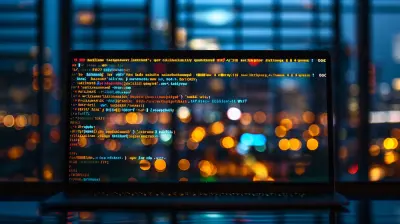Mobile Privacy Tools to Keep Your Data Secure on the Go
26 September 2025
Let’s face it — our phones know more about us than most of our family members. They’ve got our texts, emails, bank info, photos from 2009, and even those weird late-night searches we wish we could erase from memory. But here’s the kicker — if you’re not using the right mobile privacy tools, your phone might be spilling those secrets to more people than you think.
With hackers, data-hungry apps, Wi-Fi snoopers, and even your phone’s own operating system watching your every tap and swipe, it's time we talked about how to protect your digital self when you're on the move. This guide is all about real, practical mobile privacy tools that can lock down your data without turning you into a tinfoil-hat-wearing hermit.
Let’s dive in.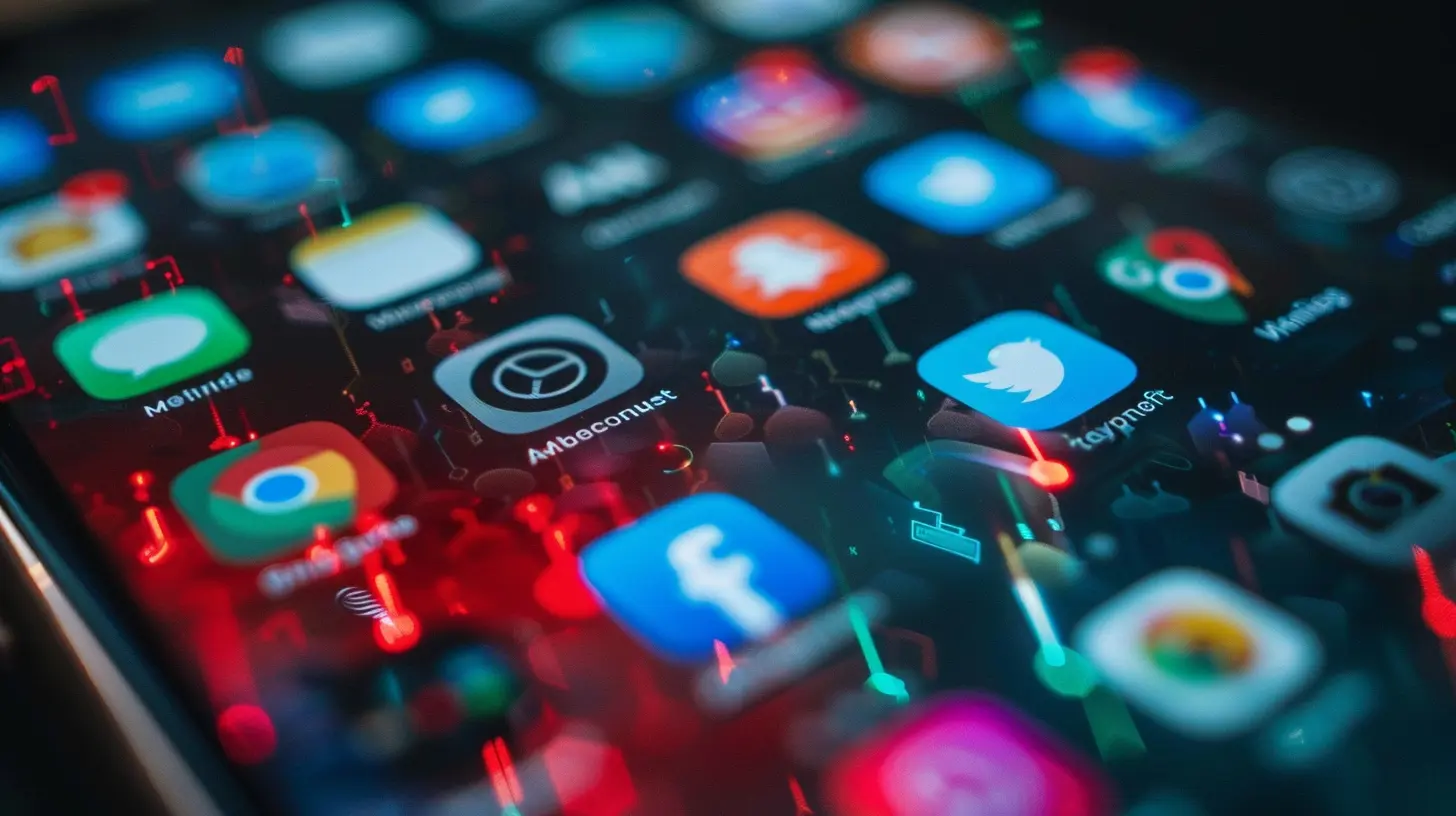
Why Mobile Privacy Matters (Yes, Even If You "Have Nothing to Hide")
You’ve probably heard people say, “I don’t need privacy tools. I’ve got nothing to hide.” But let me ask you this — would you leave your house keys under the doormat and post your address online?Exactly.
Your mobile device is a goldmine of personal information. Think passwords, credit card numbers, health info, private messages — all stored right there in your pocket. And you use your phone everywhere — at the airport, your favorite coffee shop, public transport. That means you're constantly connecting to different networks and exposing your data to risks.
Privacy isn’t about hiding — it’s about control. It’s about you deciding who gets access to your data. Not apps. Not advertisers. Not hackers.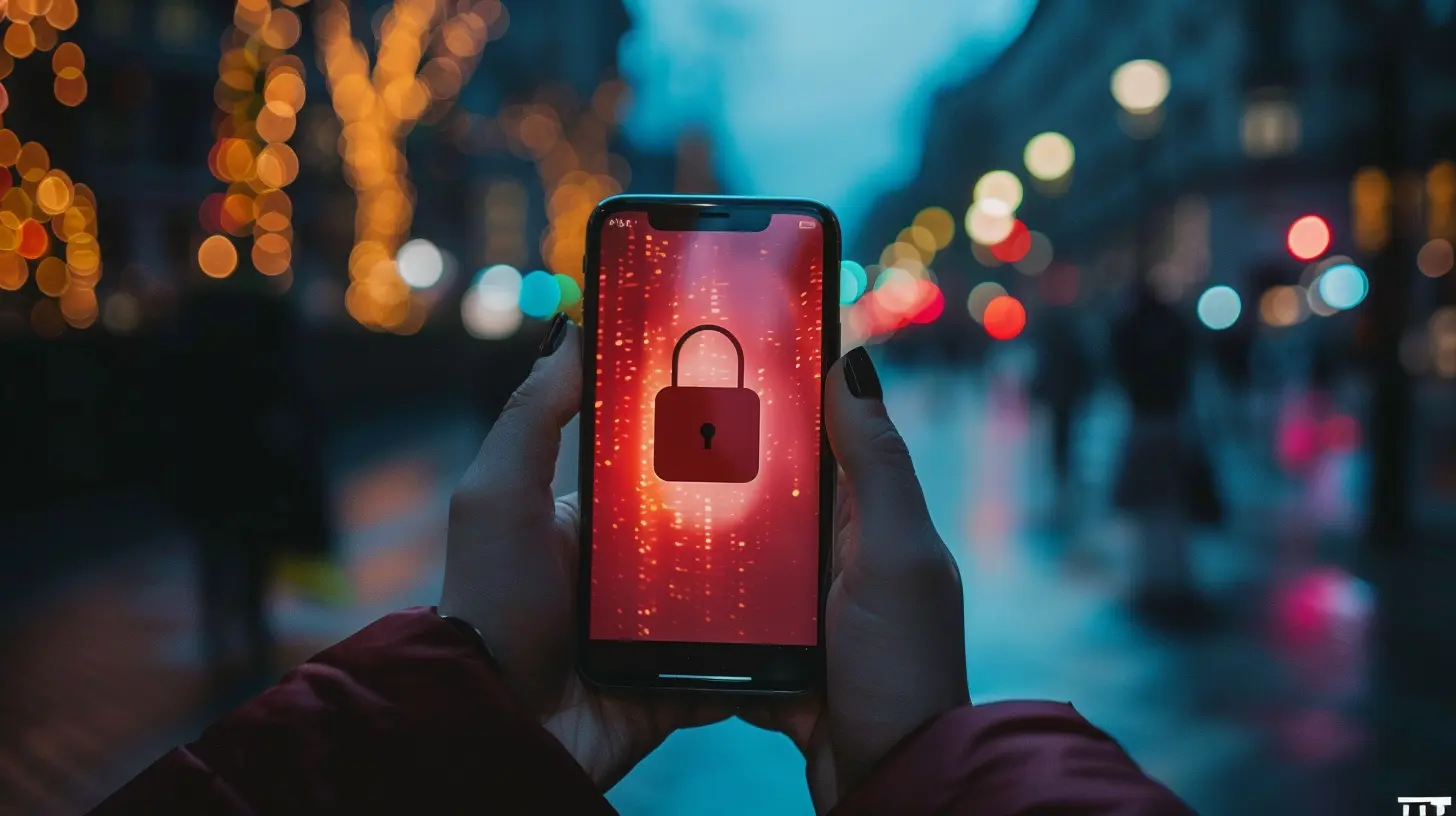
The Big Risks to Mobile Privacy
Before we jump into the tools, it’s worth understanding what we’re up against. Here are the most common threats to your privacy on mobile:- Wi-Fi Snooping: Public Wi-Fi is a hacker’s paradise. Anyone can intercept your data if you’re not protected.
- Tracking & Surveillance: Many apps track your location and behavior in the background — often without your full consent.
- Malicious Apps: Some apps look legit but are designed to steal your data.
- Operating System Loopholes: Even iOS and Android occasionally leak data or store it insecurely.
- Data Harvesting by Advertisers: Free apps often come at the cost of your personal data, which is sold for targeted ads.
Alright, now onto the good stuff.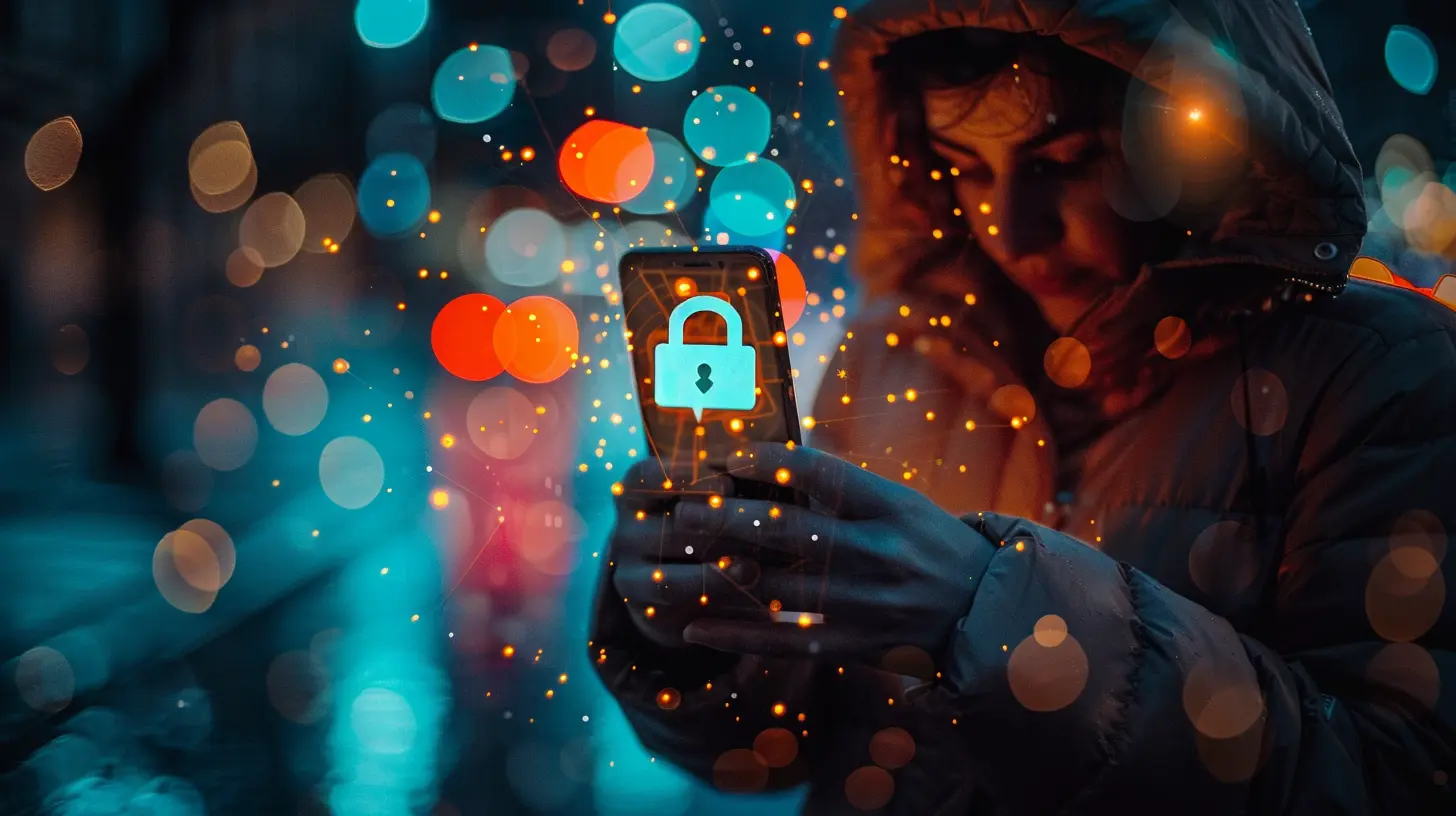
Essential Mobile Privacy Tools to Keep Your Data Secure on the Go
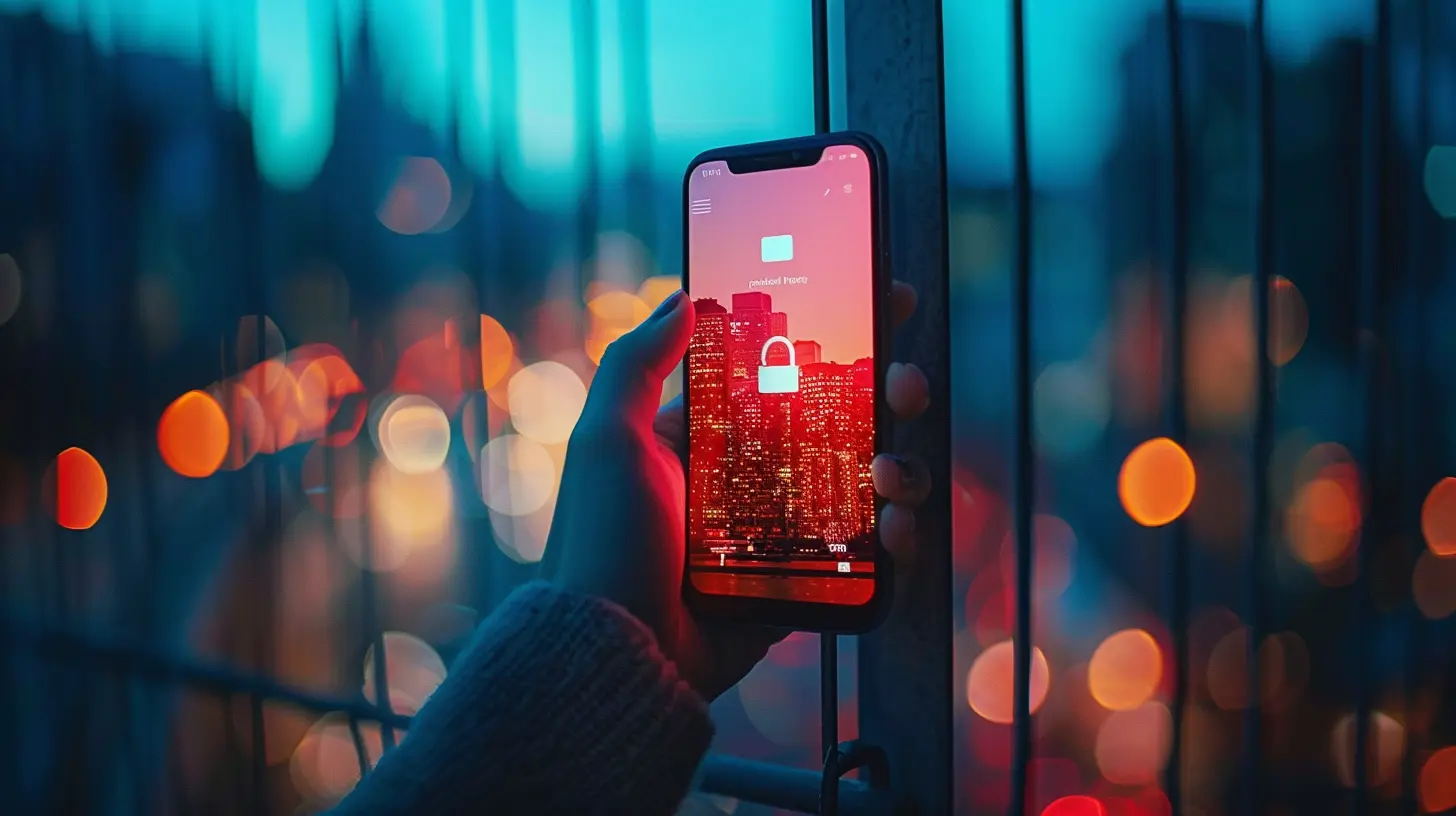
1. VPNs: Your Digital Cloak of Invisibility
What It Is: A Virtual Private Network (VPN) encrypts your internet connection and hides your IP address.Why You Need It: When you use a VPN, your data gets funneled through a secure server, making it nearly impossible for hackers to read. Whether you’re at Starbucks or in an airport lounge, a VPN is your first line of defense.
Top Picks:
- ProtonVPN – Doesn’t log your activity and has a great free tier.
- NordVPN – Fast, secure, and user-friendly.
- ExpressVPN – Top-tier privacy with a kill switch and no logs.
Hot Tip: Always turn on your VPN before connecting to public Wi-Fi. Think of it as locking your car before walking away from it.
2. Encrypted Messaging Apps: Because Privacy Isn’t Just About WhatsApp
What It Is: These apps use end-to-end encryption to keep your messages safe from prying eyes.Why You Need It: Standard text messages and even some mainstream chat apps don’t always encrypt your convos. That means your private talks aren’t so private.
Top Picks:
- Signal – Open-source, no ads, completely encrypted. The gold standard.
- Telegram (Secret Chats only) – Has end-to-end encryption, but only on secret chats.
- WhatsApp – Uses encryption but is owned by Meta, so… grain of salt.
Hot Tip: Make Signal your default messaging app if you’re serious about privacy. It’s simple, secure, and just works.
3. Privacy-Focused Browsers: Stop Bleeding Data Online
What It Is: Browsers that don’t track or collect your data while you surf the web.Why You Need It: Google Chrome is fast, sure, but it’s also a data gobbler. Every search, every click, is recorded.
Top Picks:
- Brave – Blocks ads and trackers by default, lightning-fast.
- Firefox Focus – Auto-erases your browsing history and blocks trackers.
- DuckDuckGo Privacy Browser – Built-in privacy features and tracker blocking.
Hot Tip: Pair your browser with a privacy-focused search engine like DuckDuckGo to prevent search-related tracking.
4. Password Managers: Because “123456” Isn’t Gonna Cut It
What It Is: A password manager stores all your credentials in a secure, encrypted vault.Why You Need It: Reusing passwords is like using the same key for your house and car — risky. A password manager helps you generate strong, unique passwords for every app and site.
Top Picks:
- Bitwarden – Free, open-source, and secure.
- 1Password – Seamless across devices, feature-rich.
- LastPass – Easy to use, though recent breaches have hurt its rep.
Hot Tip: Don’t just stop at strong passwords. Enable 2FA (two-factor authentication) whenever possible.
5. App Permission Managers: Who Gave That Flashlight App Access to Your Contacts?
What It Is: Tools that let you control and manage what permissions apps have on your phone.Why You Need It: Many apps ask for permissions they don’t need. Why would a calculator need access to your camera?
Built-in Tools:
- On Android, check under Settings > Privacy > Permission Manager.
- On iPhone, go to Settings > Privacy & Security.
Extra Tool: Bouncer (for Android) – Temporarily grant permissions and auto-revoke them after.
Hot Tip: If an app is asking for too much access, it’s a red flag. Either revoke permissions or delete the app.
6. Anti-Tracking Tools: Stop Being Followed Around Online
What It Is: These tools block trackers that collect your data even after you close an app or site.Why You Need It: Ever Google something and see an ad for it seconds later on Instagram? Yeah, that’s tracking.
Top Picks:
- Jumbo – A privacy assistant that helps manage settings across apps.
- App Tracking Transparency (iOS 14+) – Built-in to iPhones. Use it.
- DuckDuckGo App Tracking Protection (Android) – Still in beta, but blocks third-party trackers in other apps.
Hot Tip: Go into your app settings and turn off “Allow Tracking” for every app. Your future self will thank you.
7. Encryption Tools for Files and Photos
What It Is: Apps that encrypt your private files and media so only you can access them.Why You Need It: You don't want sensitive files — tax docs, ID pics, private photos — falling into the wrong hands.
Top Picks:
- Cryptomator – Open-source encryption for files, great for cloud storage.
- Keepsafe – Secures photos and videos with PIN protection.
- Tresorit – Secure cloud storage with zero-knowledge encryption.
Hot Tip: Don’t rely on your phone’s basic “hide” feature. If someone gets access to your phone, they’ll find it. Use real encryption.
8. Secure Email Apps: Because Gmail Ain’t as Private as You Think
What It Is: Privacy-focused email providers that don’t scan your emails to show you ads.Why You Need It: Standard email services often analyze your messages for marketing and data profiling.
Top Picks:
- ProtonMail – End-to-end encryption, based in privacy-friendly Switzerland.
- Tutanota – Clean interface, encrypted by default.
- Mailfence – Encrypted email with extra tools like calendars and documents.
Hot Tip: Use secure emails for sensitive communications — financials, legal docs, anything personal.
9. Mobile Firewalls: Gatekeepers for Your Apps
What It Is: Apps that monitor and control internet access for other apps.Why You Need It: Some apps phone home… a lot. A mobile firewall can stop them from sending your data to third parties.
Top Picks:
- NetGuard (Android) – Open-source, no root required.
- Lockdown Apps (iOS) – Blocks trackers and domains system-wide.
Hot Tip: Disable internet access for apps that don’t need it. Why should your solitaire game be talking to a server in another country?
10. Use a Privacy-Respecting Mobile OS (Advanced Users Only)
What It Is: Custom or de-Googled versions of Android built for privacy.Why You Need It: Android and iOS collect a surprising amount of data. Alternative operating systems give you full control — but come with a learning curve.
Top Picks:
- GrapheneOS – Designed for Pixel phones, focuses on extreme privacy and security.
- CalyxOS – More beginner-friendly but still private.
Hot Tip: Only go this route if you’re tech-savvy and ready to tinker. It’s not plug-and-play, but it’s the ultimate privacy flex.
Final Thoughts: Being Paranoid Is the New Smart
We live in a world where data is currency, and your phone is the vault. Problem is, it's a vault that’s constantly being poked, prodded, and picked. Using mobile privacy tools isn’t about being paranoid — it’s about being prepared.You don’t need to use every tool on this list, but integrating just a few can make a massive difference in keeping your data secure while you’re on the go. Start small. Use a VPN. Install Signal. Review your app permissions.
Think of mobile privacy like brushing your teeth — it’s daily maintenance for long-term benefits.
Stay safe out there.
all images in this post were generated using AI tools
Category:
Privacy ToolsAuthor:

Pierre McCord
Discussion
rate this article
1 comments
Kiera Green
Great insights! Mobile privacy is crucial in today’s digital age. Implementing these tools can empower users to take control of their data and enhance security while on the go.
September 29, 2025 at 4:43 PM

Pierre McCord
Thank you! I’m glad you found the insights valuable. Empowering users with mobile privacy tools is indeed essential for secure data management.

